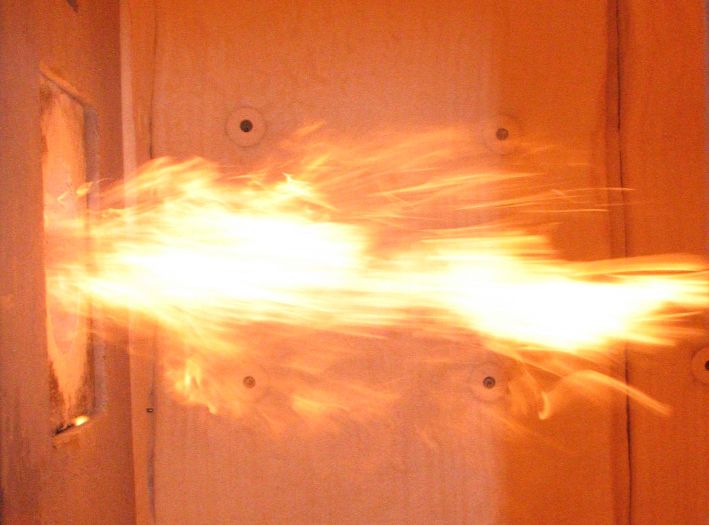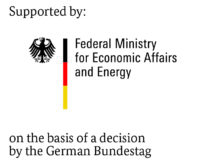Industrial heat from alternative fuels
05 October 2020 – In a current research project the Gas- und Wärme-Institut Essen e.V. (GWI) and OWI Science for Fuels gGmbH want to extend the combustion concept they have developed for the “combined burner for liquid and gaseous biogenic fuels” for the generation of industrial heat to include the use of energy sources from bio, residual and waste materials. With the envisaged multi-fuel burner system, pyrolysis oils from residual and waste materials could, for example, be converted into process heat. Similarly, liquid and gaseous by-products from industrial production could also be utilized. The aim is to develop a burner concept with integrated pre-evaporation for liquid fuels on an industrial scale (100 kW) and to build and test a functional model.

Burner in high temperature process at 180 kW. Photo: OWI
Against the background of the CO2 certification, significantly increasing expenses for the operators of combustion plants are expected in the medium and long term. Due to the scarcity of certificates, the emissions trading system will indirectly cause a steady price increase per ton of CO2 emitted in the future. The multi-fuel burner system opens up opportunities for reducing CO2 emissions and increasing energy efficiency while lowering energy costs and reducing disposal costs. This results in economic and ecological advantages both for operators of combustion plants and for companies where residual and waste materials from process engineering production plants are generated, such as in the chemical industry.
One of the challenges for the researchers is the system integration of a new pre-evaporation and mixture formation concept for liquid fuels, which has to be adapted to the limited installation space and demanding thermal boundary conditions in industrial furnaces. GWI and OWI therefore want to integrate the current external pre-evaporation of liquid fuels with a zone aerodynamically separated from mixture formation and combustion into the burner, significantly minimizing the current complex construction effort and facilitating the utilization of process heat. This further development reduces the space requirement and thus facilitates implementation when used as a modernization measure for existing plants. In addition to the combustion itself, the application-oriented implementation under consideration of industrial boundary conditions must also be taken into account.
The IGF project 21192 N of the Gas- und Wärme-Institut Essen e.V. is funded through the AiF as part of the program for promoting joint industrial research (IGF) by the German Federal Ministry of Economics and Energy based on a German Federal Parliament resolution.






